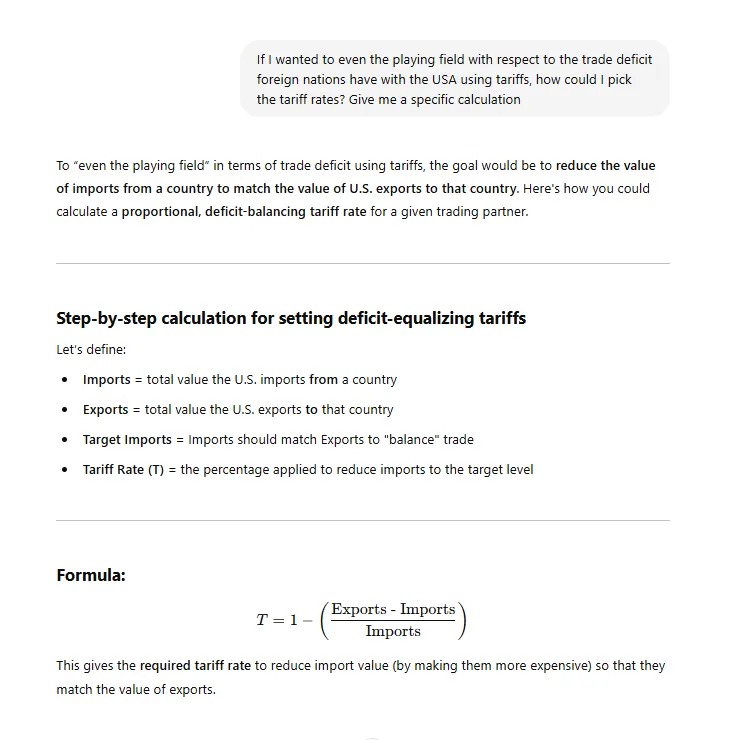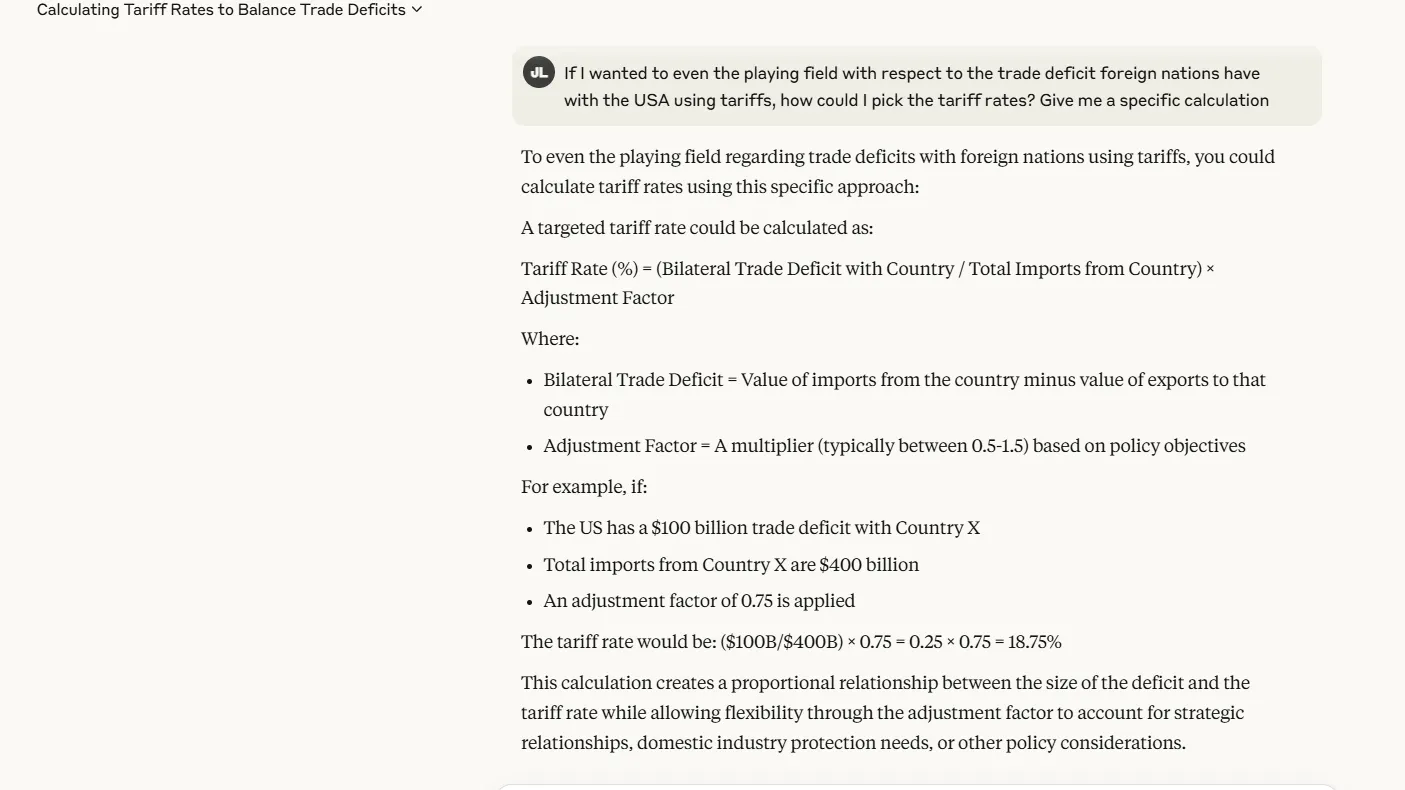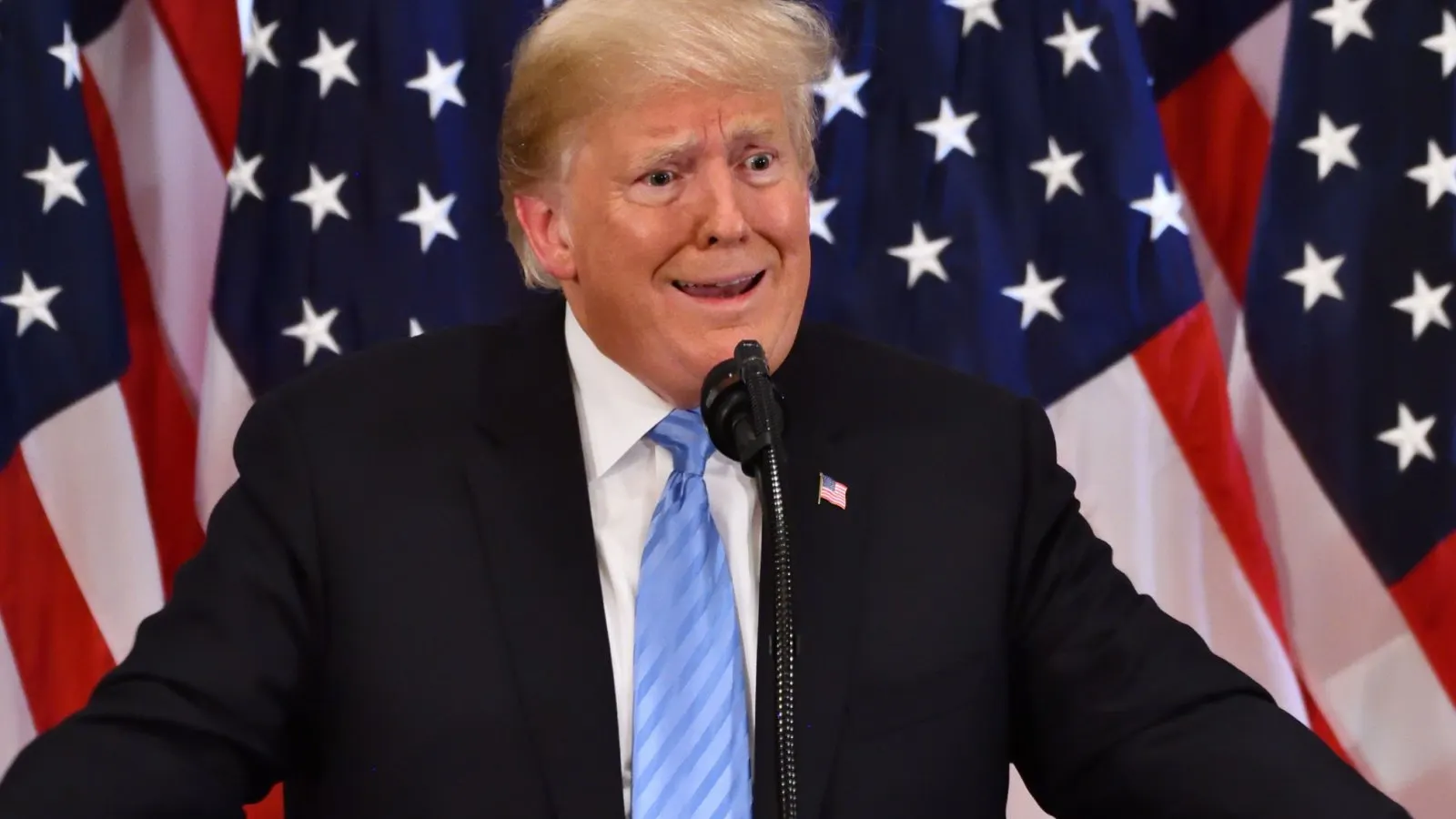Donald Trump's administration unveiled a controversial new tariff plan that economists quickly identified as relying on an overly simplistic and probably unrealistic formula: trade deficit divided by imports.
Wednesday's tariff announcement included a 10% baseline tariff on nearly all imports and imposed significantly higher rates for specific countries. When explaining the country-specific rates, Trump claimed they reflected "tariffs charged to the USA" by trading partners, showing figures like 39% for the European Union, 49% to Cambodia and 10% to the Heard and McDonald Islands—an Australian territory which, notably, is entirely inhabited by penguins
FULL LIST: Liberation Day pic.twitter.com/ZBiRuJBCAr
— Rapid Response 47 (@RapidResponse47) April 2, 2025
On social media, the approach was quickly lambasted as being economically unsound. But soon, X pundits and journalists alike speculated that the White House must have consulted AI chatbots rather than economists to determine its trade policy.
Indeed, ChatGPT, Claude, Gemini, and Grok all suggested the same approach as the White House–dividing the trade deficit by imports.
We verified it on ChatGPT and came up with the same result:

Claude went a bit further and even added an “adjustment factor”—basically the 0.5x that Trump arbitrarily chose to show he was being "lenient."

Some users asked different chatbots if this was actually a screw-up. In one of the most viral interactions, Grok replied mentioning that apparently, the guys at the White House didn’t actually know how to apply the formula ChatGPT provided.
“The Trump administration’s team did screw up the tariff rate calculation by using a formula meant to calculate the change in tariffs to justify the actual tariff rates they claimed other countries were charging. This led to a misrepresentation of foreign tariffs and the imposition of U.S. tariffs that don’t truly reciprocate anything, as they’re based on trade deficits rather than actual tariff barriers,” it replied to a query on X. “The error stems from both a misuse of the formula and a broader misunderstanding of trade economics.”
That said, AI enthusiasts had their fair share of fun among the chaos. Tech commentator Rohit Krishnan called this "the first large-scale application of AI technology to geopolitics," suggesting the White House might have simply prompted an AI system for a quick solution. Others went a step further, saying the Trump administration vibe coded a formula for tariffs, with this being the first instance of “vibe governing” in the history of humankind.
This is Vibe Governing
— rohit (@krishnanrohit) April 3, 2025
Others mentioned this was an episode of “vibe tariff” and “vibe policymaking.”
If you don’t know the reference, you can read all about vibe coding here—but it basically means asking an AI chatbot to do something for you (in this case, coding) without you knowing what’s going on, not supervising it, and not caring about the consequences. You just vibe with it.
But to vibe govern, you also need experts, otherwise you get bad results—like this unnecessarily complex and unrealistic equation. Maybe all they needed was better prompt engineers.

